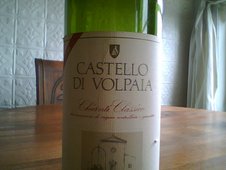Tuesday, June 8, 2010
Talking Turkey
Turkish wine. Name a winemaker.
If you said Kavaklidere, aside from your pronunciation skills being highly advanced, you are a sharp observer of the Turkish wine scene here in the U.S. Of course, that doesn't take much study, because the wines of only one Turkish winemaker currently make it into America: Kavaklidere.
Kavaklidere is also the largest winery in Turkey, with 550 hectares in land holdings throughout Anatolia in five different regions: Ankara, Eastern Anatolia, Thrace, Aegean and Central Anatolia. Along with rival winemaker Doluca, they rule the industry. They produce a dizzying array of bottlings, using many different grapes, both native and, increasingly, international. Their output is eight million liters a years, 80% of which is consumed in Turkey. Still, with all its advantages, Kavaklidere's wines are little known in this country. Basically, unknown, outside Turkish restaurants. (France imports quite a bit of Turkish wines.)
Recently, Kavaklidere endeavored to become slightly better known in the U.S. by showing off some of their wines at Le Cirque. Winery owner Ali Başman himself, a dignified, fit man, was there to make the case for his wines. One could sense his pride in his offerings, while also reading on his face the difficulty of the road in front of him. In this difficult economic climate, when so many good wines sit on the shelf gathering dust, when wonderful Greek wines are still waiting to be noticed by the public, what chance do Turkish wines have?
The story. Kavaklidere was founded in 1929, by Ali's father's sister's husband, Cenap And. (Got that?) The And union produced no offspring, so Ali's father, Mehmet Başman, eventually took over, later handing control over to his son. In 1993, the company—like many vintners across the world around that time—decided to up the quality of the wines, and show off indigenous Turkish grapes, while still cultivated international grapes to see what they could do. Turkey has more than 600 varietals of its own, among them the white Narince and the red Öküzgözü. (And you thought Greek grapes were hard to pronounce.)
We tasted six wines, beginning with the Egeo Rose 2009, which was made of Cal Karasi, Syrah and Grenache. Cal Karasi is used mainly for roses in Turkey. The Egeo was one of the better wines of the evening, tasting of cherry, chalk, mineral, almonds and green notes. Quite unusual. A 2006 Sauvignon Blanc followed. Seeing no oak, and aged on its lees for 15 months, it was full and earthy, wide with a bitter edge. The 2007 and 2008 vintages, it was explained, were lost to the cold.
The Prestige Narince 2007 was 100% Narince, 50% aged in new oak, 50% in old oak, so I was able to zone in on the qualities of the grapes. Those qualities? Well, fresh. A very fresh wine, for one registering at a beefy 14% alcohol. Otherwise, the usual cirtrus, apple, pear and vanilla you might expect in a white grape you're unfamiliar with.
The Pendore Öküzgözü 2008, hailing from the northeast corner of Turkey, was light and watery in color and turned out to be light and watery on the palate as well, going a bit flat as it went on. However, its very lightness made it ideal for food. The next red was the Prestige Kalecik Karasi 2005. The Turks think of this grape as their Pinot Noir, and it is one of their best sellers. There is a slight resemblance there to the finicky French grape, but just slight. It's delicate, tasting of red fruit and cocoa. The Prestige Boğazkere 2008, finally, was very dry, tasting of dried cherries and other dried fruits.
The evening ended with a most unique sweet wine, call Turkey's first and only fortified wine. Tatli Sert Narince is made with the Narince grape using the Port wine method, in which fermentation is interrupted by the addition of grape alcohol. It is then aged for seven years in barrel. The result tastes of rhubarb, strawberry and stones, and dries out your mouth almost immediately. Quite unlike any sweet wine I've had. It's a rare dessert wine that should be taken with food. The Kavaklidere crew was very anxious as to whether they should import it. I think they should.
Labels:
turkish wine,
wine
Subscribe to:
Post Comments (Atom)



1 comment:
Great Article- I believe the Turks are making big strides to really develop their indigenous grapes and combine them with foreign ones they are now cultivating on their own soil. They are on the right track and gaining interest of others who, maybe even a year ago, would never have considered them in the running to being a viable land of wines.
Post a Comment